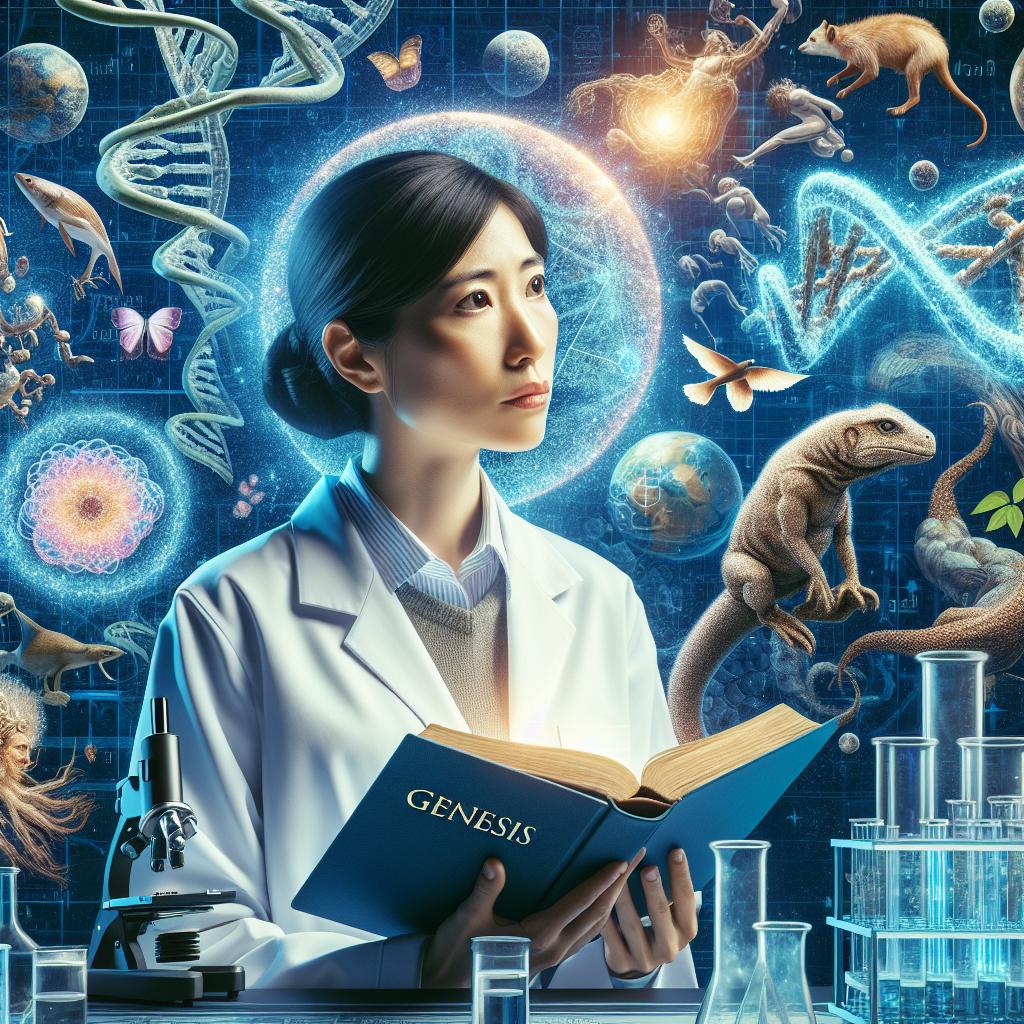
Christian Geneticist Rejects Evolution: Unveiling God's Design
Published: 04 May 2024
Professor of Genetics Says 'No!' to Evolution
As a professor of genetics and a forester, I have dedicated my career to studying populations of trees and breeding more productive ones. In my work, I review forest genetic literature and contribute to research on various tree species. Interestingly, I have found no biological data in the field of tree genetics that would require evolutionary explanations. In fact, I could easily pursue my career without ever mentioning evolution. This led me to question the evidence supporting evolutionary claims, especially in the field of genetics.
One of the most common misconceptions in textbooks is the suggestion that microevolution is a small-scale example of macroevolution. This idea is often supported by the story of grey or black moths adapting their color to match the bark of trees in polluted or cleaner environments. However, what is often concealed is that these adapted populations have fewer alleles (gene variants) compared to unselected natural populations. Similar patterns can be observed in forest trees. Populations adapt to specific environments, but this adaptation leads to a decline in genetic information rather than an increase, which is required for macroevolution.
Breeding is another area where evolutionary claims are often misunderstood. When breeders eliminate unwanted genes to create domesticated forms, they inadvertently make these forms genetically poorer. These domesticated forms usually cannot survive in nature without human assistance, and if they do, it is due to interbreeding with wild forms that revitalize the gene pool. The successes in breeding primarily come from guided recombination, where breeders selectively combine certain rare genes to achieve desired traits. This process does not create anything new but simply rearranges existing genetic information.
There is often talk about positive mutations in genetic literature, but I have found it challenging to provide documented examples of such mutations. While there are numerous examples of negative and neutral mutations, positive mutations that lead to an increase in genetic information are elusive. It is important to differentiate between finding useful alleles (gene variants) and demonstrating positive mutations. The presence of useful alleles does not necessarily imply the creation of new genetic information but rather the existence of variants within the gene pool.
Another argument often used to support evolution is the idea of similarities between organisms. While similarities are considered evidence for common ancestry, the lack of similarities is rarely accepted as an argument against evolution. For example, the similarity in hand shape between humans and frogs is seen as evidence for common ancestry, but the differences between human hands and those of horses or bats, which are supposedly closer relatives, are ignored. Similarly, the universality of the genetic system (DNA-RNA-protein) is often cited as proof of common ancestry, but there are many biochemical systems specific to certain groups of organisms that are absent in others.
Molecular genetics was expected to provide evidence for evolution, but it has not confirmed the postulated phylogenetic sequences. Instead, it has shown taxonomic distances between organisms, supporting the classification system established by Linnaeus rather than Darwin's theory of evolution. Molecular genetics has also presented challenges, such as the presence of multiple copies of genes or noncoding sequences within genomes. These repeats could not have been formed by random mutations acting on a common ancestor's genome. To explain this phenomenon, some propose an unexplained "molecular drive," while others suggest that there was no common ancestral genome to begin with.
When we observe nature within the limited time frame available to us, we see a decrease rather than an increase in useful alleles, a decrease in the number of species rather than an increase, and a loss of information rather than its increase. It raises questions about whether nature is moving from chaos to increasing organization or from an organized state towards increasing chaos. Evolution is not a conclusion drawn solely from observations; it is an ideology that selectively applies observations when convenient and ignores them when not.
This battle against evolution has not only brought me face-to-face with scientists but also with philosophers. In Poland, my views have received considerable publicity and popular interest, leading to a surprising alliance between Marxist and Catholic philosophers against my activity. Even some Catholic clergymen, including bishops, are prominent defenders of evolution. As a result, I have delved into theological and philosophical objections raised by individuals like Fr Pierre Teilhard de Chardin.
The confrontation with philosophers has been challenging, as my forestry training did not prepare me for this aspect. However, my efforts have yielded results. The proponents of evolution are starting to speak in less convincing terms. The intensity and financial support behind the offensive in favor of evolution indicate that evolutionists are concerned.
Why This Matters:
Understanding the scientific and philosophical arguments against evolution is crucial for Christians who seek to reconcile their faith with scientific claims. By critically examining evolutionary explanations in light of genetics and other scientific disciplines, we can gain a deeper understanding of the complexity of life and the challenges faced by evolutionary theory. This knowledge empowers us to engage in informed discussions about creation, evolution, and our biblical worldview.
Think About It:
- How does the decline in genetic information observed in microevolution challenge the idea of macroevolution?
- Can you think of any examples of positive mutations that lead to an increase in genetic information?
- How do similarities and differences between organisms impact our understanding of common ancestry?
- What implications do the challenges posed by molecular genetics have on the theory of evolution?
- Reflect on how the battle against evolution extends beyond scientific debates into philosophical and theological realms. How can Christians navigate these discussions effectively while remaining faithful to their beliefs?
